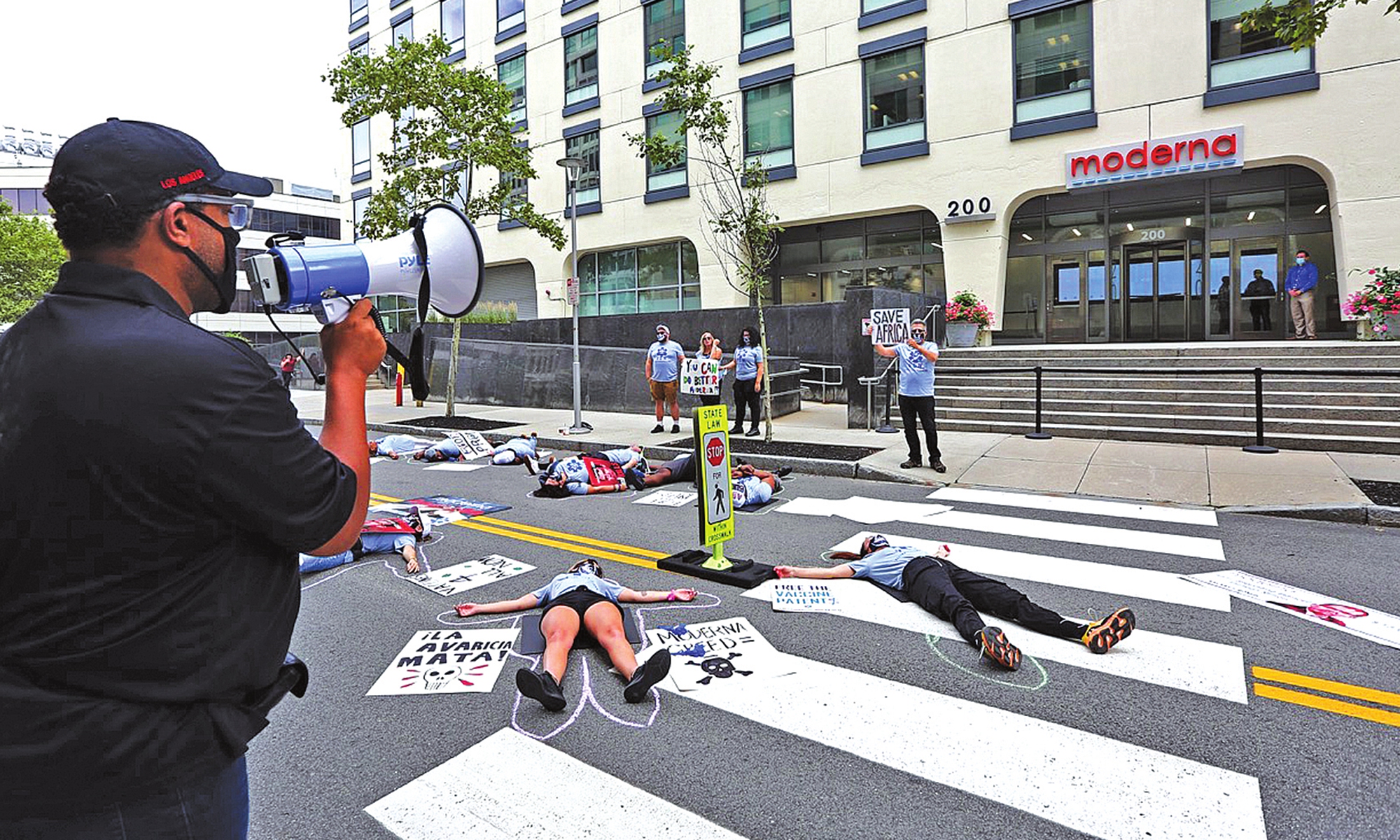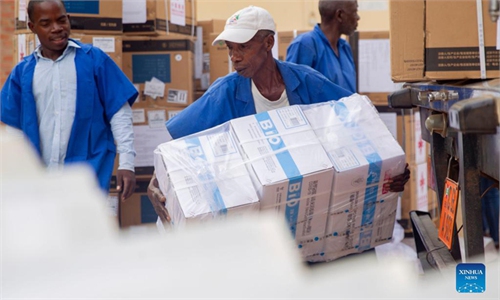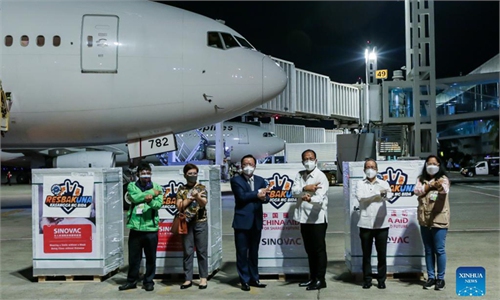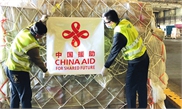Exclusive: US health organization protests against big drug makers, calls for sharing surplus COVID-19 vaccines ahead of G20 summit

AHF advocates launch protest against US vaccine maker Moderna on August 31, 2021 as part of "Vaccinate Our World" campaign. Photo: Courtesy of AHF
Ahead of the highly expected G20 summit in Rome, Terri Ford, Chief of Global Advocacy and Policy at US-based AIDS Healthcare Foundation (AHF), said the organization is launching rallies against US big pharmaceutical companies for making money while people are dying and called for the world's big powers to stop weighing the political pros and cons of suspending vaccine patents and share surplus COVID-19 vaccines with developing countries.
In an exclusive interview with the Global Times on Thursday, Ford said that the G20 summit is an opportunity for the leaders of the 20 largest economies to finally change the course of the pandemic and set the world on a path to recovery. "They must unequivocally pledge to do everything in their power to 'Vaccinate Our World' and this is a matter of survival," she said.
AHF is the largest AIDS organization in the world and has been working in over 45 countries providing lifesaving care and treatment to more than 1.6 million clients. In April, AHF launched a global campaign called "Vaccinate Our World" aimed to urge leaders from European Union (EU) and G20 countries to use the summit to commit to real actions on global COVID-19 vaccine access.
During the upcoming G20, the foundation plans to call on support for patent waivers on COVID-19 vaccines, increasing access to genomic sequencing technology, raising $100 billion for global cooperation, mandating the sharing of all global public health-related information and data, and drafting a new Global Public Health Convention.
In May, the study called "A global public health convention for the 21st century", supported by AHF, was published on the British medical journal The Lancet, proposing 10 recommendations to strengthen global public health governance and promote compliance with global health security regulations.
Ford said the implementation of the recommendations might involve reforming the WHO to empower it with special capabilities or require other agencies to carry out some additional duties. She added that the absence of political will presents a substantial barrier to global investment in health.
A Chinese senior official from the China International Development Cooperation Agency announced on Tuesday that China will strive to contribute 2 billion doses of COVID-19 vaccine to the world this year, in addition to donating 100 million doses to developing countries, and providing $100 million to COVAX to facilitate global vaccine cooperation and build a global community of health for all.
China has provided more than 1.5 billion doses of COVID-19 vaccine to 106 countries and four international organizations since the beginning of this year, as well as a large number of epidemic prevention supplies, including protective suits, face masks and ventilators, to 150 countries and 13 international organizations, Luo Zhaohui, Chairman of the China International Development Cooperation Agency, said during a press conference.
However, many wealthy nations have drawn global criticism for purchasing, hoarding and managing the bulk of global COVID-19 vaccines, in addition to avoid requiring pharmaceutical companies to share the vaccine formulas and manufacturing technologies required to increase worldwide production.
According to Ford, as of mid-October, enough doses were administered globally to vaccinate nearly half of the world's population, but sadly, almost 80 percent were administered in wealthy countries. Barely 7 percent of Africans have been vaccinated and in low-income countries, only 2.5 percent of people have received one dose.
In its latest effort to mitigate the challenges and threats from COVID-19, the foundation launched rallies, mobilized social media and organized protests against big pharmaceutical companies, including Moderna, Pfizer and J&J, for making a profit while people are dying.
"Since the wealthiest nations are responsible for vaccine hoarding that has caused so much scarcity worldwide, they bear the burden of protecting all humanity by ensuring everyone, regardless of economic status or country of origin, has access to lifesaving vaccines," Ford mentioned.
The New York Times slammed Moderna in an article published on October 9 for supplying its shots almost exclusively to wealthy nations, keeping poorer countries waiting and earning billions in profit.





